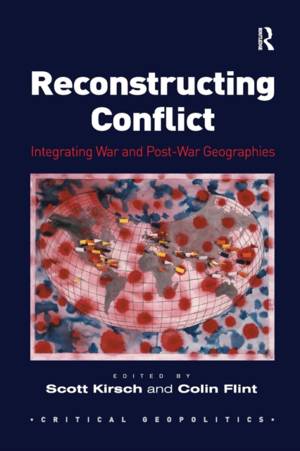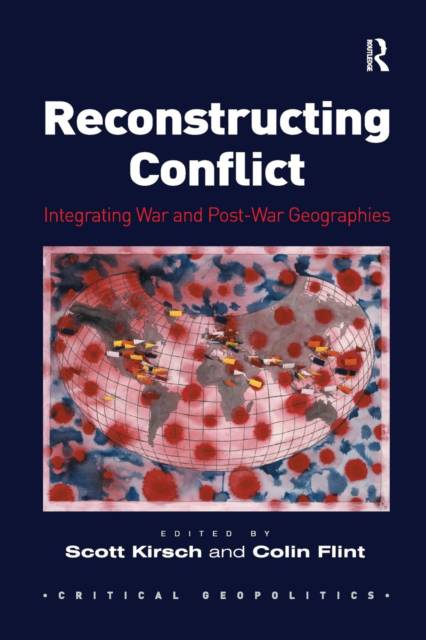
Bedankt voor het vertrouwen het afgelopen jaar! Om jou te bedanken bieden we GRATIS verzending (in België) aan op alles gedurende de hele maand januari.
- Afhalen na 1 uur in een winkel met voorraad
- In januari gratis thuislevering in België
- Ruim aanbod met 7 miljoen producten
Bedankt voor het vertrouwen het afgelopen jaar! Om jou te bedanken bieden we GRATIS verzending (in België) aan op alles gedurende de hele maand januari.
- Afhalen na 1 uur in een winkel met voorraad
- In januari gratis thuislevering in België
- Ruim aanbod met 7 miljoen producten
Zoeken
€ 105,45
+ 210 punten
Uitvoering
Omschrijving
Reconstruction - the rebuilding of state, economy, culture and society in the wake of war - is a powerful idea, and a profoundly transformative one. From the refashioning of new landscapes in bombed-out cities and towns to the reframing of national identities to accommodate changed historical narratives, the term has become synonymous with notions of "post-conflict" society; it draws much of its rhetorical power from the neat demarcation, both spatially and temporally, between war and peace. The reality is far more complex. In this volume, reconstruction is identified as a process of conflict and of militarized power, not something that clearly demarcates a post-war period of peace. Kirsch and Flint bring together an internationally diverse range of studies by leading scholars to examine how periods of war and other forms of political violence have been justified as processes of necessary and valid reconstruction as well as the role of war in catalyzing the construction of new political institutions and destroying old regimes. Challenging the false dichotomy between war and peace, this book explores instead the ways that war and peace are mutually constituted in the creation of historically specific geographies and geographical knowledges.
Specificaties
Betrokkenen
- Auteur(s):
- Uitgeverij:
Inhoud
- Aantal bladzijden:
- 344
- Taal:
- Engels
Eigenschappen
- Productcode (EAN):
- 9781138277076
- Verschijningsdatum:
- 16/11/2016
- Uitvoering:
- Paperback
- Formaat:
- Trade paperback (VS)
- Afmetingen:
- 156 mm x 234 mm
- Gewicht:
- 485 g

Alleen bij Standaard Boekhandel
+ 210 punten op je klantenkaart van Standaard Boekhandel
Beoordelingen
We publiceren alleen reviews die voldoen aan de voorwaarden voor reviews. Bekijk onze voorwaarden voor reviews.









